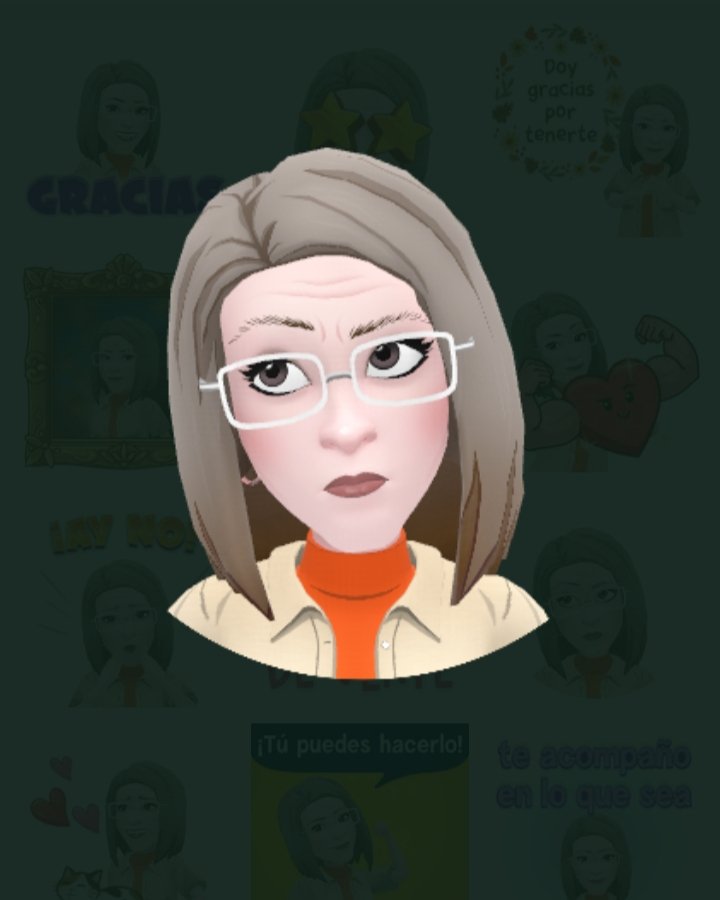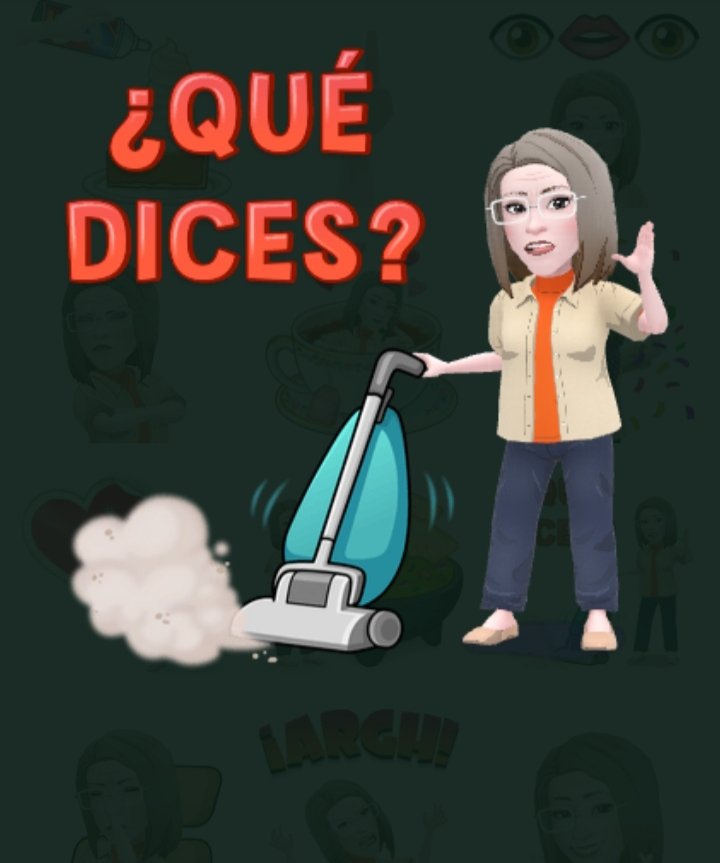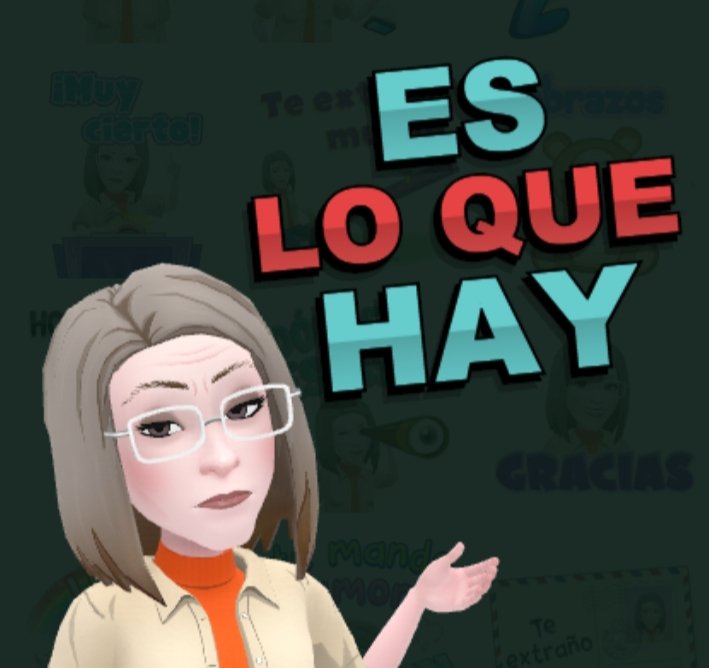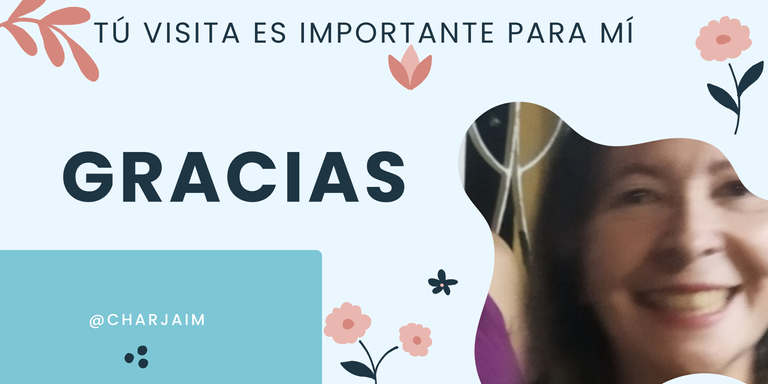
Yo no conocí abuelos, ya habían muerto o simplemente no existieron nunca, no estuvieron. Por allí, en el árbol genealógico sí están porque ¿de qué otro modo? Pero no lo he hecho ni tengo como recrearlo. Espero haberme explicado.
No supe cómo era la experiencia de saludar a un abuelo o recibir su bendición, porque los abrazos sé que no se habrían dado, porque en esa época estos no se daban como ahora. Quizá habrían sido unos viejecitos con un sombrero, un garrote en la mano, la mayor parte del tiempo sentados en una silla de madera. Puras suposiciones.
.
No puedo decir que la abuela hizo también de abuelo, porque eso es absurdo. Apenas supo hacer su parte, imponerle también la del compañero ausente, sería una gran locura. "Soy abuela y abuelo, porque estuve allí haciendo los dos roles". Permítanme que me ría.
Escucho con frecuencia las expresiones: «soy madre y padre a la vez», o «soy padre y madre», con más frecuencia la primera. Este es un reconocimiento, que se asume, ante la ausencia del otro en la crianza de los hijos. A veces son los hijos quienes dicen: «mi madre fue mi padre también» y me cuesta asimilar esa idea. Son tan diferentes y específicas las actuaciones de cada uno de los progenitores, que no veo como alguien pueda suplantar al otro. Ofrezco mis disculpas.

Entiendo que hay tareas que tradicionalmente se asignaron a uno o al otro; pero que no necesariamente tiene que ser así. Yo iba o no a las reuniones escolares, entonces lo hacía el papá; él también aprendió a cocinar para turnarnos, según los horarios que tuviéramos; los dos nos quedábamos velando el sueño del niño con fiebre, sin competencia ni imposiciones. Era lo normal en el hogar.
Algunas personas fueron criadas por una hermana mayor, una tía, la madrina o la abuela, en ausencia de los padres. El mundo es amplio y diverso. No todas las madres lo son en el desempeño, que se espera de ellas, e igual los padres. Lo que sí está definitivamente mal es hacerle sentir incomodidades a ese niño, por no estar conviviendo con la presencia materna o paterna.

La mayoría de los traumas y problemas no se derivan de la ausencia del progenitor sino de lo que siente el niño por el acoso de los otros. Cuando trabajé en aulas pude ver de cerca las necesidades de afecto de muchos jóvenes, que les daba por llamar mamá o papá a un docente por la disposición y trato que este ofrecía, aún teniendo la presencia de sus padres, incluso conocí profesores que aceptaban este tipo de adopciones temporales.
Supe también de estudiantes criados por una sola persona, hombre o mujer, que desarrollaron una autoestima aceptable, bien consigo mismos, enfocados en sus metas, hoy hombres y mujeres con sus profesiones y respectivos hogares.
Concluyo en mi reflexión, además con la suma de la experiencia, que de lo que se trata es de la crianza amorosa que ese hombre o mujer o ambos juntos, puedan darle a sus hijos o a la persona que decida criar, para que ese ser tenga en la vida, la mejor disposición anímica para ser feliz y que no haya un extrañamiento de lo que no exista, aunque a veces en lo presente pueda haber ausencias.
Gracias por tu amable lectura.
Mi contenido es original.
Imágenes obtenidas con Bitmoji.
He traducido con Google.


I didn't know any grandparents; they were already dead or simply never existed, they weren't there. They are there in the family tree, because how else? But I haven't done it, nor do I have a way to recreate it. I hope I've explained myself well.
I didn't know what it was like to greet a grandparent or receive their blessing, because I know hugs wouldn't have been given, because at that time they weren't given like they are now. Maybe they would have been little old people with a hat, a club in their hands, sitting on a wooden chair most of the time. Pure supposition.
I can't say that Grandma also played the role of Grandpa, because that's absurd. She barely knew how to play her part; imposing the role of her absent partner on her would be sheer madness. "I'm both Grandma and Grandpa, because I was there playing both roles." Allow me to laugh.
I frequently hear the expressions: "I'm both mother and father," or "I'm both father and mother," more often the former. This is an acknowledgment, assumed, of the absence of the other in raising the children. Sometimes it's the children who say, "My mother was also my father," and I have a hard time assimilating that idea. The actions of each parent are so different and specific that I don't see how one can replace the other. I offer my apologies.

I understand that there are tasks that were traditionally assigned to one or the other; but that doesn't necessarily have to be the case. Whether I went to school meetings or not, my father did; he also learned to cook so we could take turns, depending on our schedules; we both stayed up to watch over the feverish child's sleep, without competition or impositions. It was normal in the home.
Some people were raised by an older sister, an aunt, a godmother, or a grandmother in the absence of their fathers. The world is wide and diverse. Not all mothers are capable of the duties expected of them, and neither are all fathers. What is definitely wrong is making that child feel uncomfortable because they are not living with a mother or father.

Most traumas and problems do not stem from the absence of a parent, but from the child's feelings of bullying. When I worked in classrooms, I saw firsthand the need for affection of many young people. They would call a teacher "Mom" or "Dad" because of the teacher's willingness and treatment, even when their parents were present. I even knew teachers who accepted this type of foster care.
I also learned of students raised by a single person, a man or a woman, who developed acceptable self-esteem, feeling good about themselves, focused on their goals, and today are men and women with their professions and respective homes.
I conclude in my reflection, also with the sum of experience, that what it's all about is the loving upbringing that man or woman, or both together, can give their children or the person they decide to raise, so that that person has the best mental disposition in life to be happy and that there is no estrangement from what doesn't exist, even though sometimes there may be absences in the present.
Thank you for your kind reading.
My content is original.
Images obtained with Bitmoji.
I have translated with Google.
